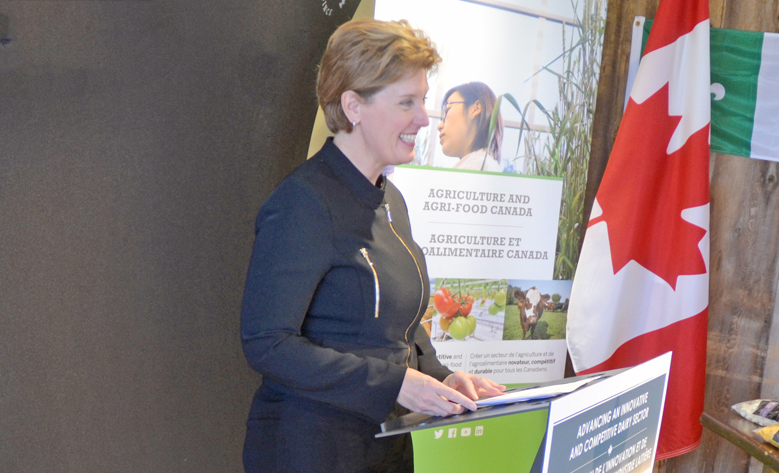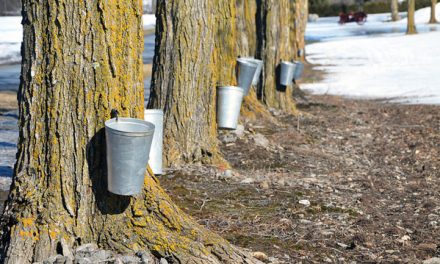Minister of Agriculture and Agri-Food Marie-Claude Bibeau has been active working to resolve trade issues with China after exports were halted earlier this year. Sawyer Helmer photo
OTTAWA – As tensions grow in the Canadian canola industry, Canada’s leaders have been meeting with producers and industry representatives to work to resolve the issue be it re-opening trade to China or finding new markets.
On March 29, Minister of Agriculture and Agri-Food Marie-Claude Bibeau and Minister of International Trade Diversification Jim Carr were in Saskatoon where they met with agricultural industry leaders and their provincial counterparts to discuss priorities for Saskatchewan’s agriculture sector, including canola exports.
Minister Bibeau and Minister Carr took the opportunity to meet with Saskatchewan’s Agriculture Minister, David Marit, and Minister of Trade and Export Development Jeremy Harrison, to discuss key trade issues, outline opportunities for collaborative engagement with China and hear the views of their provincial colleagues.
The Ministers hosted a roundtable with representatives from the canola sector, where they reaffirmed the Government of Canada’s commitment to work through all available channels to resolve the disruption of Canada’s canola seed exports to China as quickly as possible.
The Ministers held a roundtable with key agricultural stakeholders from the grains, pulses, and special crops sector to discuss opportunities and challenges, and how to continue building an even stronger and more innovative agricultural sector for Saskatchewan.
The Ministers also met with other agricultural industry groups to discuss various topics of importance to the sector, including export opportunities, research and trade diversification in global markets.
In a speech on April 1, Minister Bibeau explained that both a delegation sent to China and a working group in Canada were options on the table to help move discussions forward.
“As mentioned by the Prime Minister last week, Canada is prepared to send a high-level technical delegation to China,” Minister Bibeau explained. “On the weekend, I sent a letter to my Chinese counterpart, requesting to send a delegation led by the president of the Canadian Food Inspection Agency, along with her team of plant health experts, and the support of technical experts from the prairie provinces. In the meantime, our plant health experts are engaged and exchanging technical information with Customs China, who have agreed to continue discussions in the near future.”
On April 4, the newly formed working group held their first meeting to discuss the importance of focusing on a science-based solution.
“Strong collaboration and ongoing dialogue between industry and governments is vitally important,” Minister Bibeau. “That is why we have set up a working group, that includes the Canola Council, the Canola Growers Association, Richardson, Viterra, and representatives from the federal government and the Alberta, Manitoba, and Saskatchewan governments. The group will also explore alternative markets, both for the short- and long-term.”
Co-chaired by the deputy minister of Agriculture and Agri-Food Canada and the president of Canola Council of Canada, the working group membership includes the president of the Canadian Food Inspection Agency, the president the Canadian Canola Growers Association, deputy ministers from the provinces of Alberta, Saskatchewan and Manitoba as well as other senior government and industry officials.
The working group will continue to meet regularly to closely monitor the situation and collaborate to resolve this issue.













